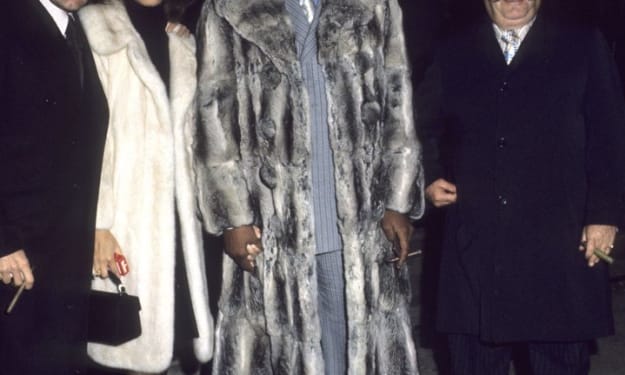Lionel Tate: The Tragic Case of a Child Charged with Murder
Lionel Tate's case gained national attention when he was charged with the murder of 6-year-old Tiffany Eunick in Florida in 1999 at the age of 12. The trial sparked debates over trying juveniles as adults. Lionel's initial conviction and life sentence without parole were later overturned, leading to a plea agreement and a reduced sentence. The case highlighted the need for juvenile justice reform and raised awareness of the complexities in treating young offenders in the criminal justice system. Despite his release on parole, Lionel's story continues to influence discussions about the appropriate balance between accountability and rehabilitation for juvenile offenders.

Lionel Tate's case became a prominent and contentious legal battle in the United States, following the tragic murder of 6-year-old Tiffany Eunick in Florida in 1999. The case brought to light the complexities of juvenile justice and the potential consequences of trying young offenders as adults. Lionel's story raised questions about the appropriate balance between accountability and understanding the developmental limitations of children.
On July 28, 1999, Lionel Tate, then just 12 years old, was left in the care of his mother's friend, Kathleen Grossett-Tate, while his mother was at work. Tragically, during that time, Lionel severely beat 6-year-old Tiffany Eunick, Kathleen's daughter, causing fatal injuries. The incident occurred while the two children were playing unsupervised in the home, and it resulted in Tiffany's death.
The gravity of the crime was deeply unsettling, and Lionel's age at the time made it an unprecedented case in the legal system. The prosecution decided to charge Lionel as an adult, arguing that the brutality of the crime and Lionel's physical size (Lionel was larger than Tiffany due to his athletic background) warranted a more severe punishment than that typically given to juvenile offenders.
During the trial, the defense team portrayed Lionel as a child who did not fully comprehend the consequences of his actions, citing his young age and intellectual limitations. They argued that trying him as an adult was unjust and that a more rehabilitative approach was necessary to address his actions.
The trial received widespread media attention and divided public opinion. Some believed that Lionel's age should be taken into account, emphasizing the need for rehabilitation and support for troubled youth. Others argued that the horrific nature of the crime demanded a stern punishment, even considering Lionel's age.
In March 2001, Lionel Tate was found guilty of first-degree murder and sentenced to life in prison without the possibility of parole. The decision to try Lionel as an adult sparked intense debates about the appropriateness of such a sentence for a child, raising concerns about the long-term impact of incarcerating juveniles for life.
As public awareness grew about the case, various child advocacy groups and legal organizations rallied in support of Lionel Tate, advocating for juvenile justice reform. They argued that children should not be treated the same way as adults in the criminal justice system due to their developmental immaturity and the potential for rehabilitation and growth.
The case eventually garnered attention from legal experts and even garnered support from some high-profile individuals, including legal scholar Alan Dershowitz and former professional wrestler Dwayne "The Rock" Johnson.
In 2004, Lionel Tate's conviction was overturned, and he was granted a new trial. This decision came after significant public outcry and growing concern about the fairness of his sentence. As part of the new plea agreement, Lionel pleaded guilty to second-degree murder and was resentenced to 10 years in prison and one year of house arrest.
Lionel's case ignited a national conversation about juvenile justice and led to reforms in Florida's legal system regarding the sentencing of juveniles. The case also inspired the establishment of the "Lionel Tate Fund for Children," a foundation aimed at advocating for juvenile justice reform and raising awareness about the complexities of trying young offenders as adults.
In 2008, Lionel Tate was released from prison on parole, having served seven years behind bars. However, his legal troubles did not end there. In 2015, he was arrested for armed robbery, violating the terms of his parole, and was subsequently sent back to prison.
The case of Lionel Tate remains a poignant reminder of the challenges in balancing accountability and rehabilitation for juvenile offenders. It exemplifies the need for comprehensive juvenile justice reform, recognizing the unique needs of children in the legal system, and providing opportunities for rehabilitation and growth rather than punitive measures. Lionel's tragic story has left a lasting impact on the legal community and continues to influence conversations about juvenile justice reform in the United States.
About the Creator
Enjoyed the story? Support the Creator.
Subscribe for free to receive all their stories in your feed. You could also pledge your support or give them a one-off tip, letting them know you appreciate their work.





Comments
There are no comments for this story
Be the first to respond and start the conversation.